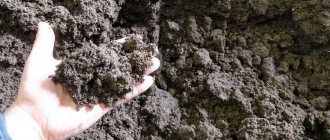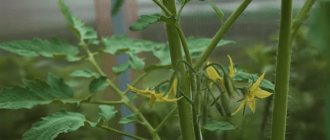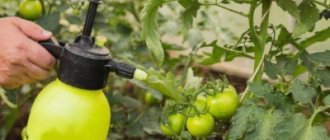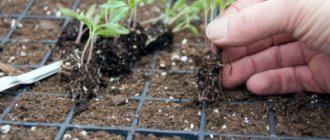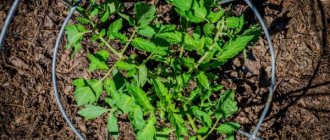Have you ever used aspirin in your garden? Did you know that using aspirin in the garden can have beneficial effects on many of your plants? Scientists have proven that acetylsalicylic acid stimulates the plant's immune system, helping to fight damage caused by pests, diseases and mechanical problems.
Using aspirin is a safe option and contains far fewer chemicals than most over-the-counter products. Acetylsalicylic acid, the active ingredient in aspirin, is derived from salicylic acid, which is found in the bark of willow and many other trees. This natural cure-all can truly improve the health of your plants.
By the way, if you come across skeptical articles on the Internet about the effectiveness of aspirin, we believe that their authors do not follow the research and are a little behind the times.
- 7 properties of regular aspirin for plants
- How does aspirin work in plants?
- How to use aspirin in the garden
- How to prepare an aspirin solution for treating plants
Let's learn more about the properties of aspirin and start using them for the benefit of our plants!
Salicylic acid is found in willow bark
How does aspirin work in plants?
When stressed, plants themselves produce small amounts of salicylic acid. This amount helps plants cope with insect attacks, drought, nutritional deficiencies and disease. The component helps strengthen the plant immune system. There is real science behind the claims. For example, the US Department of Agriculture found that salicylic acid causes an enhanced immune response in plants of the nightshade family. The increased response helped prepare the plant for attack by microbes or insects.
Benefits of aspirin
Acetylsalicylic acid or aspirin is a well-known herbal medicine. It was first obtained from willow bark. Later it was revealed that plants, when they are in critical situations (transplantation, drought, exposure to disease, insects) independently produce this substance. Thus, these tablets can be considered as a tool that has a positive effect on the health of plantings. By spraying and watering tomatoes with aspirin, you can get a good harvest and protect your plantings from many diseases.
You may be interested in:
Fertilizing tomatoes in a greenhouse: what fertilizers and when to use Growing tomatoes in a greenhouse will allow you to get a harvest a month earlier than in open ground. Get strong and...Read more...
Properties:
- increases productivity;
- strengthens the immune system;
- accelerates seed germination;
- provides disease prevention;
- increases stress resistance.
How to use aspirin in the garden
There are some potential side effects when aspirin is used incorrectly. Plants may develop brown spots and scorched foliage. The best way to protect against this is to spray early in the morning so that the plant leaves have time to dry before evening. It is also better to spray the plants early so as not to harm beneficial insects. Bees and other pollinators are most active after the sun has touched the plants, so the period before full sunrise is best. Observe the plants' reaction to the treatment. Not all plants may be suitable for taking aspirin, but the nightshade family (eggplant, peppers, tomatoes and potatoes) have been shown to respond just fine. Best of all, aspirin is fairly cheap and will not harm plants when used correctly.
Beneficial effects of aspirin on tomatoes
Aspirin benefits plants when used regularly. It increases the resistance of tomatoes to adverse weather conditions. Minor deficiencies in care are eliminated. Interruptions in watering, lack of mineral fertilizing.
On a note! Aspirin is fed to tomatoes growing in open and protected ground.
The aspirin solution, getting into the soil, improves its structure and disinfects. Advantages of its use:
- seeds germinate faster;
- the seedlings do not get sick or stretch;
- tomatoes do not suffer from rot, late blight, or cracking;
- the fruiting period increases;
- resistance to bad weather conditions (heat, rain) increases.
How to prepare an aspirin solution for treating plants
Dissolve 1 aspirin tablet in 5 liters of water. Let it sit for a few minutes until it dissolves completely. Add a little liquid dish soap (this will act as an adhesive for the solution) and stir gently.
Pour the prepared mixture into a garden sprayer. If you notice that the aspirin has not completely dissolved, wait a few minutes or you will clog the nebulizer head.
Once every three weeks, spray plants (especially nightshades) with this mixture, covering the stems and leaves. It helps if you wait until late morning when the dew has evaporated from the plants.
At the same time, water the roots with this mixture, thoroughly moistening the soil around the base of the plants. Repeat this every month just like spraying. There is no need to use liquid soap for watering.
In this article we talked in detail about harmful tips for using soda, salt and other crap >>>
Prepare an aspirin solution for tomatoes.
- You need to take 2 tablets of the medicine with a dose of 500 mg (2 tablets will contain 1 gram of aspirin) and dissolve them in 7 liters of water. Water the bushes with this mixture and repeat the procedure after 3 weeks.
- To spray from a spray bottle, you need to take 1 tablet of the medicine with a dose of 500 mg and dissolve it in 5 liters of water.
In order for the tablet to dissolve well, you need to shake it in a small volume of water, and then dilute this concentrated mixture to normal.
Photo: blogg.gartnerbutikken.no
During the flowering period of tomatoes, it is necessary to constantly spray it to prevent diseases. Tomato seeds for germination are also soaked in a weak solution of acetylsalicylic acid.
Detailed instructions for processing tomatoes.
- During the period of growing tomato seedlings, water them with a solution of acetylsalicylic acid. This procedure helps strengthen the roots and stems and will help painlessly transplant seedlings into the ground.
- Use while soaking seeds. To do this, take 1/2 tablet of the medicine and dissolve it in 1 liter of water, bring it to a temperature of +20...+25 C. Keep the seeds in the prepared water for 12 hours. This is enough to strengthen the seeds so that they are less susceptible to diseases.
- Root watering. Every 2 weeks, water with the medicine in the growth zone simultaneously with ordinary irrigation.
- Spraying. One spray per week during the flowering period is enough to prevent disease.
To make the solution stick to the bushes better, you can add liquid soap. There is no need to increase the dosage.
Recommendations are given only for watering plants from the nightshade family. The medicine may harm other crops.
When to process tomatoes and how often
You cannot process tomatoes on a hot sunny day. This will cause burns on the leaves. It is also not recommended to do this in rainy and humid weather. Because the solution will simply be washed off and there will be no effect.
Reference. The best time for spraying is in the morning before 10 o'clock and in the evening from 5 to 8. It is important to make sure after evening spraying that all the moisture has been absorbed before dark.
Plants should be treated several times. If this is the prevention of diseases in an adult plant, then once every 2 weeks is enough. If the tomatoes are already sick or there have been heavy rains and frosts, then you need to increase this amount by 2-3 times.
Reviews
Marina (Gomel region)
“As an experiment, I decided to treat tomatoes with aspirin. I treated seeds, young seedlings and adult shoots with the solution. Before planting in the ground, I soaked the seeds in a simple composition: 5 aspirin tablets per 1 liter of water. For comparison, I did not process the second batch of seeds. The treated seeds sprouted much faster. I watered the young seedlings once every 14 days, diluting 2 tablets of salicylic acid in a liter of water. The result pleased me: before this, the tomatoes were weak and the yield was low. After feeding with aspirin, the tomatoes began to bear fruit throughout the season. The “Bull’s Heart” variety was especially successful this year.
Valery (Moscow)
“I read in one online publication about the benefits of regular aspirin for tomatoes. I decided to process it. I diluted the tablet in a liter of water and periodically watered the seedlings with this solution. Last year, tomatoes suffered from cladosporiosis, but this season everything went smoothly. There were no signs of disease on the seedlings. The harvest turned out to be modest, but much better than last year.”
Treating tomatoes with salicylic acid is an effective way to avoid seedling diseases and strengthen plant immunity. Proper preparation and use of the solution will help achieve a good harvest every year.
Soaking the seeds
Soaking in an aspirin solution promotes disinfection and rapid germination of seeds. The seedlings are stronger, grow well and practically do not get sick. This pre-sowing treatment is especially useful for eggplants, peppers and other nightshade representatives.
To prepare the solution, grind 1 tablet into powder, dilute it in a small amount of water, stir thoroughly until dissolved, and then add more water, bringing the volume to 1 liter. The seeds are soaked for 8–10 hours, after which they are planted in the usual way.
Aspirin - a folk remedy for tomato seedlings
Is there anything in common between tomatoes and humans? It turns out there is! Aspirin is equally suitable for both humans and tomatoes to solve certain problems. Yes, regular aspirin in simple tablets.
Many people know how aspirin is beneficial for humans. But we will try to explain below why it is suitable for growing tomatoes.
Scientists have discovered that acetylsalicylic acid is produced by plants in critical situations. Plants “produce” aspirin in micro quantities in order to better survive stressful conditions.
This could be temperature fluctuations, lack of moisture, the development of disease and other similar troubles. Therefore, the application of aspirin by watering or spraying the leaves increases the plants' resistance to adverse conditions during the growing season.
It is the nightshade family, and the tomato is a representative of this family, that respond well to treatment with aspirin.
What does aspirin give to tomato seedlings:
- Stress resistance
- Accelerates the onset of fruiting
- Increases yield
- Extends the fruiting period
You can start using aspirin already at the stage of soaking the seeds. To do this, finely grind half a tablet (hereinafter we will mean a 250 mg tablet) of aspirin and dissolve it in 1 liter. water.
We generously moisten a cotton pad or paper napkin with this solution and place tomato seeds on them. Cover with the same disc or napkin soaked in aspirin solution and leave for a day.
Seeds soaked in this way germinate faster and more easily. Sprouts are less susceptible to deformation and stretching.
To treat seedlings, prepare a more concentrated solution. In 1l. Dissolve 2 aspirin tablets in water. Let me remind you once again that only regular aspirin is suitable.
Soluble and effervescent forms of this medicine are not suitable for treating seedlings. They contain additives that tomatoes do not need. You can water the seedlings with this solution once every 10 days. You can alternate watering with spraying.
Such treatments are especially appropriate for the picking method of growing tomato seedlings. Tomatoes treated with aspirin solution tolerate post-picking stress better. Their root system grows faster and they get sick less.
Like any spraying, it is advisable to treat the leaves with an aspirin solution at a time when they are not exposed to direct sunlight. Droplets of the solution can act like lenses and cause burns on tender young leaves of seedlings.
Ways to use aspirin
Not everyone likes to use mineral fertilizers, growth stimulants, fungicides and insecticides. Sometimes, to the detriment of yield, they refuse to use them. They prefer to eat fruits without chemicals.
These are the kind of gardeners who love to experiment. In their opinion, medications such as aspirin will not harm health. The experiments are going well. According to reviews, tomatoes practically do not get sick and bear fruit longer.
Root feeding
Aspirin solution is watered at the roots of tomatoes throughout the summer. Prepare it immediately before use. Grind 2 tablets of 500 mg or 10 tablets of 100 mg. The powder is poured into 1 liter of water at room temperature.
After the aspirin has completely dissolved, the solution is poured into a watering can and water (9 l) is added. The bushes are watered at the root. Fertilizing is combined with main watering. Maintain an interval of 14 days between procedures.
Foliar feeding
In case of sudden changes in weather, cold snaps at night, or prolonged rains, tomato bushes are sprayed with aspirin solution on the leaf. Root feeding is carried out once in case of problems or regularly throughout the season.
Rooting cuttings
Aspirin solution is an excellent root formation stimulator, so it is recommended to soak cuttings in it for better rooting. For this purpose, a more concentrated composition is used - 1 tablet per 250 ml of water.
The cuttings are kept in the solution for 2–3 hours immediately before planting.
To enhance the effect, the liquid remaining after soaking is used to water the planting area. In addition, this will help disinfect the soil, destroying pathogenic microorganisms. Important!
Secrets of cuttings Also, when planting cuttings or when transplanting seedlings, you can simply put 1 tablet in the hole. Gradually dissolving, salicylic acid will nourish the plant, ensuring proper development and protection from negative factors.
Related article:
How to properly store beets in winter
What are the benefits of Aspirin for Solanaceae fruits?
To properly use the medicine in the garden, you need to know what Aspirin is and how it can be useful for tomatoes and other nightshade vegetable crops. You can purchase the drug in tablet form at any pharmacy. The drug is based on acetylsalicylic acid. It can be used both at the initial stage of seed preparation and throughout the growth and ripening of fruits.
Aspirin can be used in the following situations:
- During the preparation of planting material. If you dissolve the tablet in a glass of water and soak the tomato seeds, they will hatch faster and the sprouts will be even and strong.
- Spraying seedlings with a solution of acetylsalicylic acid will make the sprouts healthy and strong.
- Strengthening plant immunity. If there is a rainy summer and tomatoes grow in conditions of high humidity and regular temperature changes, then the likelihood of late blight infection increases. Due to the disease, tomatoes begin to turn black and rot. To avoid this, the bushes are watered with water and Aspirin.
- Fertilizing with a solution of acetylsalicylic acid will help extend the fruitful period of the crop. If you regularly use the drug, the plants will grow healthy and will bear fruit until the fall.
- Treating tomatoes with Aspirin will help repel pests.




